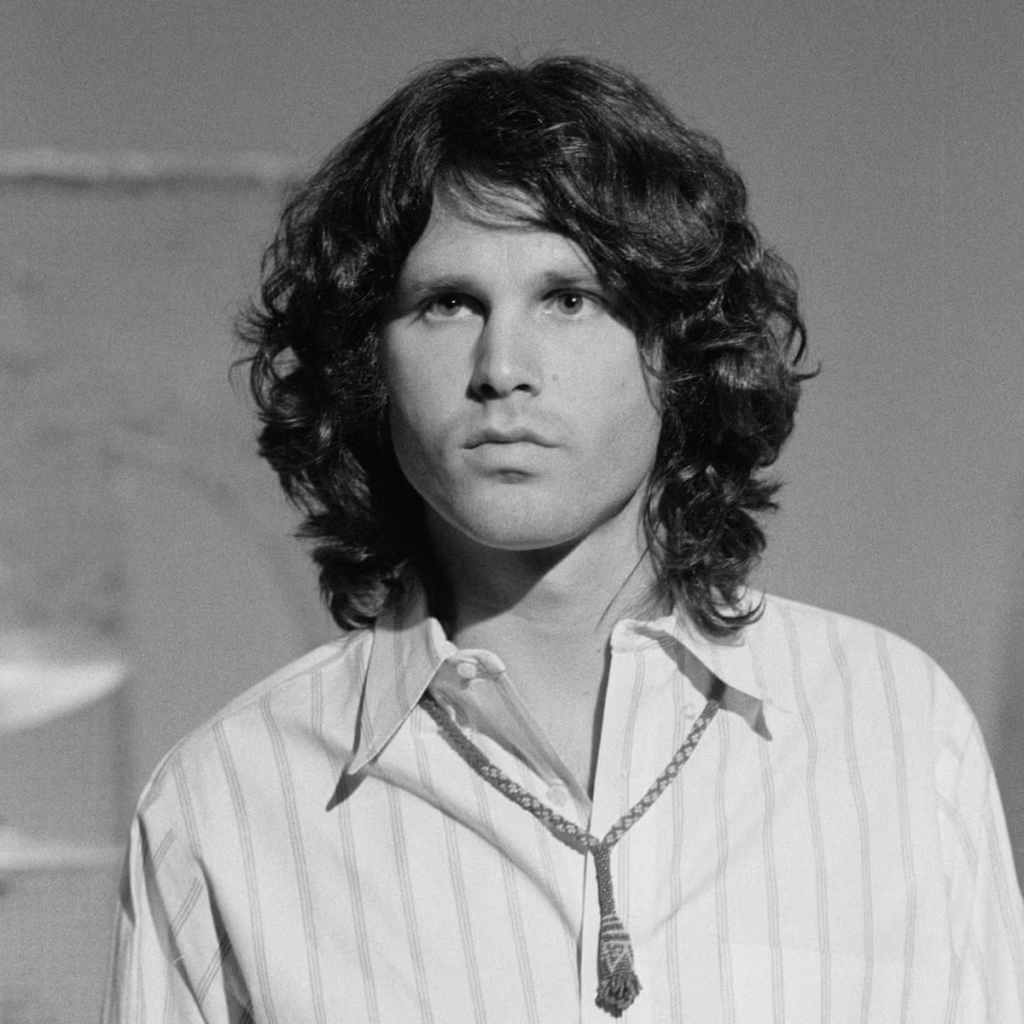
Table of Contents
Who Was Jim Morrison?
Jim Morrison, born James Douglas Morrison on December 8, 1943, in Melbourne, Florida, was an iconic American rock singer, songwriter, and poet. Best known as the charismatic frontman of The Doors, Morrison became a symbol of rebellion and artistic expression during the 1960s. His tenure with the band produced enduring hits such as “Light My Fire,” “Hello, I Love You,” “Touch Me,” and “Riders on the Storm.” Renowned for his provocative stage presence, poetic lyrics, and struggles with substance abuse, Morrison left an indelible mark on the music world. In 1971, he moved to Paris to focus on writing poetry and tragically passed away at the age of 27, reportedly due to heart failure.
Family Background
Jim Morrison was the son of Clara Clarke Morrison, a homemaker, and George Stephen Morrison, a naval aviator who rose to the rank of Rear Admiral. Admiral Morrison commanded U.S. naval forces during the pivotal 1964 Gulf of Tonkin Incident. He was also a talented pianist, often entertaining guests at social gatherings.
Morrison’s family moved frequently due to his father’s military career. Despite being a highly intelligent and dutiful child, a haunting childhood memory of witnessing a fatal car accident involving Native American workers left a lasting impression on him. This experience, which he recounted in the Doors’ song “Peace Frog,” symbolized the early seeds of his poetic and introspective nature.
Rebellious Youth
Morrison’s teenage years were marked by a growing rebellion against authority. While attending George Washington High School in Alexandria, Virginia, he developed a taste for literature, women, and alcohol, though he remained an avid reader and diary keeper. His academic interests led him to request the complete works of Nietzsche as a high school graduation gift, reflecting his intellectual curiosity and philosophical leanings.
After briefly attending Florida State University, Morrison transferred to UCLA to study film. There, he explored avant-garde cinema and became enamored with the works of Romantic poets like William Blake and Beat writers such as Jack Kerouac. Though his passion for film waned, he completed his degree to avoid being drafted into the Vietnam War.
The Doors: Rise to Fame
In 1965, Morrison co-founded The Doors with keyboardist Ray Manzarek, guitarist Robby Krieger, and drummer John Densmore. Their self-titled debut album, released in 1967, featured “Light My Fire,” which propelled the band to stardom. The Doors’ music, characterized by Morrison’s haunting lyrics and the band’s eclectic blend of rock, blues, and psychedelia, resonated with the countercultural movement of the 1960s.
The band’s success was also marked by controversy. A notorious performance on The Ed Sullivan Show solidified Morrison’s image as a rebellious figure when he refused to censor the drug reference in the lyrics of “Light My Fire.” Over the years, the band released several acclaimed albums, including Strange Days, Waiting for the Sun, Morrison Hotel, and L.A. Woman.
Troubled Personal Life and Death
Despite his musical success, Morrison struggled with substance abuse, legal issues, and volatile relationships. He spent much of his adult life with Pamela Courson, whom he considered his common-law wife, despite brief relationships with others, including a Celtic pagan marriage to Patricia Kennealy. His erratic behavior culminated in arrests for public obscenity and disorderly conduct, events that further tarnished his public image.
In 1971, seeking a fresh start, Morrison moved to Paris with Courson. However, his struggles persisted, and on July 3, 1971, he was found dead in his apartment bathtub. Although his death was officially attributed to heart failure, the lack of an autopsy fueled speculation about possible drug overdose or foul play. Morrison was buried at Père Lachaise Cemetery in Paris, where his grave remains a pilgrimage site for fans.
Legacy
Jim Morrison’s influence extends far beyond his music. Depicted by Val Kilmer in the 1991 biopic The Doors, Morrison is celebrated as a cultural icon who articulated the hopes, fears, and frustrations of his generation. His poetic lyrics and uncompromising individuality continue to inspire artists and fans, ensuring his place among rock’s most legendary and enigmatic figures.
